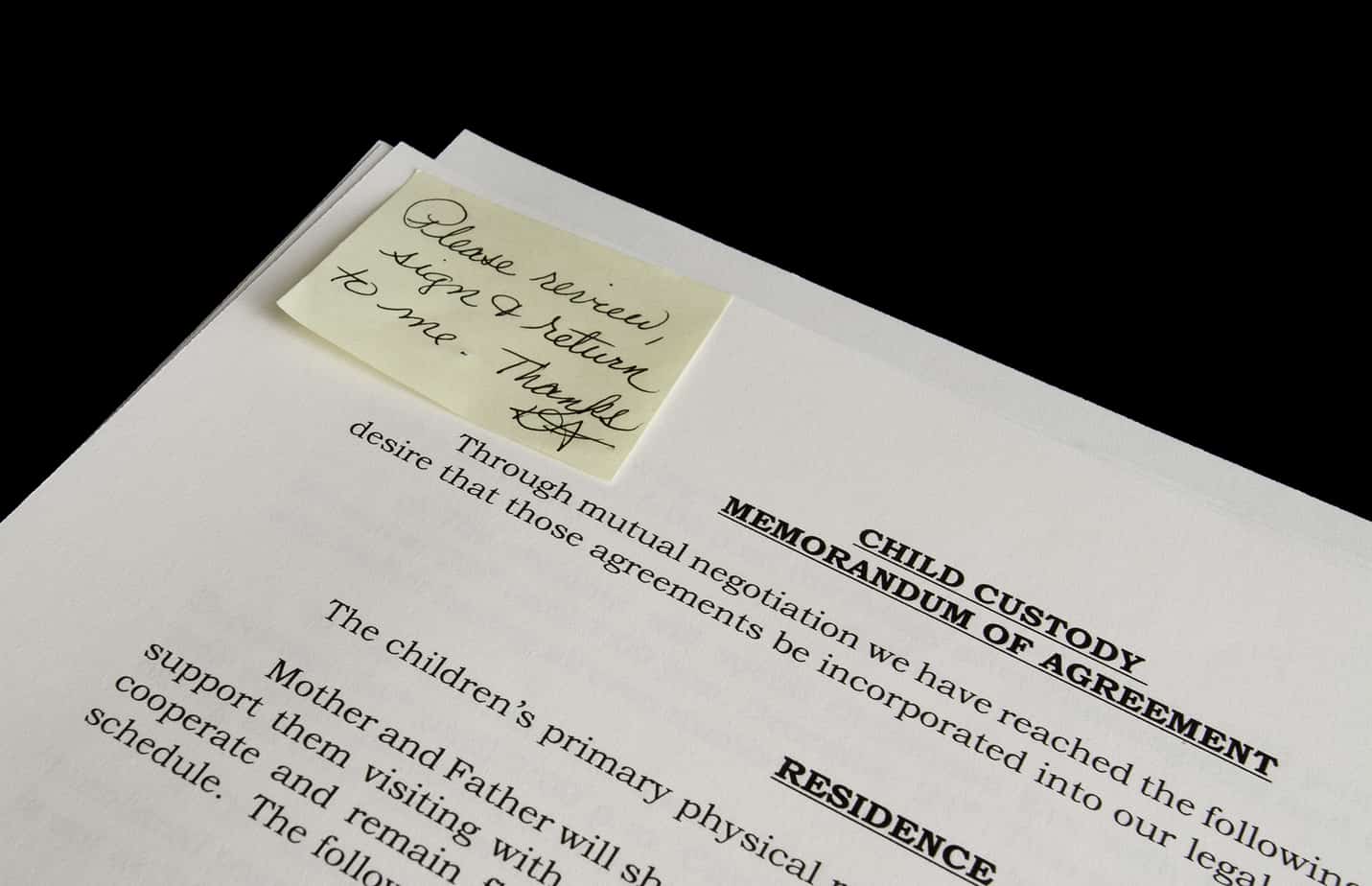Divorce mediation is a popular and effective alternative to litigation, allowing couples to resolve disputes in a less hostile and more collaborative environment. It can save time, money, and emotional stress, fostering a more amicable post-divorce relationship. However, mediation is unsuitable for all situations, and it’s essential to recognize when it may not be the best option for resolving a couple’s separation issues.
In some cases, there may be severe power imbalances or abuse, which can hinder effective negotiation. Additionally, complex legal and financial matters might not be adequately addressed during mediation sessions, requiring the expertise of attorneys or financial planners. Furthermore, particularly contentious child custody and support disagreements may not find resolution in a mediation setting, necessitating court intervention to ensure the children’s best interests are upheld.
Key Takeaways
- Divorce mediation is not recommended in cases with severe power imbalances or abuse.
- Complex legal and financial issues may require professional assistance outside of mediation.
- Contentious child custody and support disputes might necessitate court involvement.
 When Divorce Mediation Is Not Recommended
When Divorce Mediation Is Not Recommended
Divorce mediation is often seen as a more amicable and cost-effective way to approach an uncontested divorce. However, it is not always the best option for all couples. In certain situations, it may not be recommended. This section will discuss when divorce mediation is not advisable.
Firstly, situations involving domestic violence or abuse can make mediation impractical. The power imbalance between the parties may prevent a fair negotiation. Mediators cannot enforce decisions or protect victims, so alternative legal avenues are usually sought in this case.
Secondly, if one spouse is hiding assets or is unwilling to disclose financial information, mediation may not be an effective process. Honesty and transparency are crucial factors in a successful mediation. Without both parties openly sharing financial data, the mediator cannot help the couple reach an equitable outcome.
Another issue hindering the success of divorce mediation is extreme distrust or animosity between the parties. Effective mediation requires the willingness to engage in open conversations, listen to one another, and work toward a compromise. If a couple is unable or unwilling to communicate constructively, mediation may not be productive.
In addition, if one spouse actively tries to delay the divorce process or sabotage the negotiations, mediation is unlikely to be successful. Divorce meditation depends on both parties being committed to reaching an agreement and finalizing the divorce quickly and efficiently.
Lastly, suppose there are complex legal issues that require the expertise of a judge to resolve, such as disputes over child custody or complicated property divisions. In that case, mediation may not be the appropriate path. In these cases, the court must often intervene to make legally-binding decisions.
In conclusion, while mediation can benefit many couples facing an uncontested divorce, it is not always recommended. It is essential to consider the divorce’s circumstances, including significant disagreements, before determining if mediation is the most suitable choice.
Issues with Power Imbalance and Abuse
Domestic Violence and Abuse
In cases of domestic violence and abuse, divorce mediation may not be the appropriate solution. Victims of abuse often find it difficult to openly share their thoughts and negotiate in a mediated process, fearing retaliation from their abusive partner. Furthermore, the presence of physical abuse creates a volatile environment in which mediation can become dangerous for the victim.
Mediators need to recognize signs of abuse and assess if a power imbalance exists, considering its impact on the process. Mediation may be halted due to the risk of potential harm or further distress to the victim.
Power Imbalance and Intimidation
The power imbalance is another significant concern in divorce mediation. When one spouse has a clear advantage over the other, such as financial control, intimidation, or a history of manipulation, mediation may not provide a fair platform for negotiation. In these instances, the disadvantaged spouse may struggle to advocate for their needs and make informed decisions.
Mediators must be skilled in identifying and addressing power imbalances to ensure a neutral environment. However, the imbalance may be too severe in some cases, rendering mediation infeasible. In such scenarios, it’s crucial to explore alternative legal avenues to protect the rights and best interests of the disadvantaged spouse.
Problems with Legal and Financial Matters
Divorce mediation is usually a favorable approach to resolving conflicts and reaching agreements between separating couples. However, it may not be the right choice in some situations, particularly when it comes to complex legal and financial matters.
Complex Finances and Assets
Couples with intricate finances and assets, such as multiple properties, business ownership, significant investments, and complex estate planning, may face issues during divorce mediation. A mediator might not have the expertise to address these complexities, and it can be challenging for both parties to divide assets fairly. In such cases, seeking legal advice from a specialized lawyer is essential to ensure equitable distribution and protect each party’s interests.
- Business disputes: The valuation and division of shared interests can be a significant challenge if the couple owns a business.
- Estate and trusts: Complicated estate planning may involve multiple trusts, property, and investment portfolios that require thorough examination and expert handling.
- Large financial discrepancies: If significant differences in earnings, assets, or debts exist between the spouses, it may lead to unfair concessions during mediation.
Hidden Assets and Secrets
Another situation where divorce mediation may not be the best approach is when one spouse is suspected of hiding assets or financial secrets. This can lead to uneven money distribution and unfairly favoring one party. In these scenarios, hiring a lawyer to protect each party’s rights and ensure proper disclosure of financial information is crucial.
| Problem | Consequence |
|---|---|
| Hidden assets | Unfair distribution of assets |
| Undisclosed debts | Unawareness of shared liabilities |
| Unreported income | Imbalance in the child or spousal support |
In conclusion, although divorce mediation is valuable in resolving conflicts, it may not suit every situation. Complex financial matters, hidden assets, and undisclosed financial secrets are instances where seeking professional legal help is advisable, ensuring fairness and protection for both parties involved.
 Challenges in Child Custody and Support
Challenges in Child Custody and Support
Custody Arrangements
In some cases, divorce mediation may not be the best solution for determining child custody arrangements. If parents have a history of domestic violence, substance abuse, or mental health issues, reaching a mutual agreement in the child’s best interest may be challenging. High levels of conflict between the parents can also hinder the mediation process, making constructing a fair parenting plan difficult.
Additionally, when one parent is considered a flight risk or has plans to relocate to a different state or country, mediation may not be effective. In these situations, court intervention may be necessary to ensure the child’s safety and well-being.
Child and Spousal Support
Divorce mediation might not always be optimal for negotiating child and spousal support, particularly when parents have a significant income disparity. One parent may have more financial resources, creating an unfair power dynamic that could lead the other parent to agree to less support than they are legally entitled to.
Moreover, divorce mediation may not effectively uncover these financial discrepancies in cases where one of the parents is hiding income or assets. In such instances, legal intervention might be necessary to properly assess the parent’s financial situation and provide appropriate support.
Considering these factors in custody arrangements and support negotiations helps determine when divorce mediation may not be the best approach for resolving family matters. In these challenging situations, pursuing alternative methods such as court litigation might be a more suitable approach to protect the best interests of the child and parents best interests.
 Issues with Future Planning and Negotiation
Issues with Future Planning and Negotiation
Difficulty in Reaching a Settlement
Divorce mediation can often be challenging regarding future planning, especially surrounding issues like custody arrangements and co-parenting. Negotiation requires both parties to be open to compromise and act in good faith. However, there can be instances when one or both parties are unwilling to cooperate, making it difficult to reach a fair settlement.
For example, if a parent cannot compromise on decisions regarding their children, such as education or healthcare, it can halt the mediation process. In such cases, guidance from a mediator may not be sufficient, and alternative legal approaches may be necessary.
Failure to Agree on Future Plans
Another concern in divorce mediation arises when the parties disagree on essential plans, such as splitting financial assets or planning for the well-being of their children. Both parties must clearly understand the consequences of their decisions and negotiate appropriately.
When communication breaks down, or there is a lack of transparency, it can be challenging for the parties to reach a consensus on crucial topics. In these situations, divorce mediation may not be the most suitable option, and courts may need to intervene to provide a just resolution.
 Ineffectiveness of Mediation in Certain Cases
Ineffectiveness of Mediation in Certain Cases
Lack of Trust and Good Faith
In some cases, divorce mediation may not be effective in resolving issues. One of the primary reasons for this is a lack of trust and good faith between the parties involved. Without a foundation of trust, it becomes challenging for a mediator to help the parties reach a mutually beneficial agreement. In cases where one party is unwilling or unable to approach the mediation process with an honest and open mindset, the mediator’s efforts may be futile and could potentially prolong the divorce process.
Limited Mediator’s Skills
Another factor that could contribute to the ineffectiveness of divorce mediation is the mediator’s skills. Not all mediators possess the same competence, experience, and training level. A mediator who lacks essential skills, such as being impartial, facilitating communication effectively, and helping parties focus on relevant issues, may fail to lead the mediation process to a successful conclusion. It is crucial for individuals seeking divorce mediation to choose a qualified and experienced mediator who can guide them through the process with confidence and clarity, ensuring a neutral and productive environment for resolving their disputes.
Cost and Time Factors
High Cost of Mediation
Divorce mediation can be expensive depending on the mediator’s fee, location, and case complexity. Mediation costs vary widely but can range from a few hundred to several thousand dollars. Couples need to consider the financial impact of choosing mediation, especially when resources are limited.
The mediator’s fee is usually charged hourly or at a flat rate. In some cases, finding low-cost or even free mediation services may be possible, but these may not be easy to access or may have limited availability. Couples must research and understand the costs involved in mediation before committing to the process.
Time-Consuming Process
Another factor to consider is the time involved in the mediation process. Mediation can be time-consuming due to scheduling, preparation, and negotiation. Mediation can take weeks or months to complete depending on the couple’s situation and level of conflict.
Finding a mutually agreeable schedule for all parties can also be challenging. This may require taking time off work or arranging for childcare, adding to the overall time and cost involved in the process.
In summary, couples considering divorce mediation should carefully weigh the cost and time factors involved. Factors such as the mediator’s fee, scheduling expenses, and the mediation process duration can all impact the overall decision to pursue mediation. Researching and understanding these aspects is essential before deciding if mediation is the right choice for a particular situation.
Impact on Post-Divorce Relationship
Divorce mediation can positively influence the post-divorce relationship between former spouses, fostering effective communication and reducing resentment. Individuals can openly discuss their needs, concerns, and future expectations by engaging in a neutral, third-party facilitated negotiation process, thereby minimizing potential misunderstandings and conflicts.
However, in certain situations, divorce mediation may not be recommended. Cases involving a significant imbalance of power or control between the parties can negatively impact the mediation process. For example, suppose one spouse has been subjected to psychological, emotional, or physical abuse by another. In that case, the victim may struggle to advocate for their best interest in the mediation, ultimately perpetuating the control of the abusive partner.
Additionally, suppose former spouses have a history of poor communication, refusing to cooperate, or holding deep-seated resentment. In that case, it may prove challenging for mediation to produce a fair and sustainable agreement. In such instances, seeking the assistance of a divorce attorney or other alternative dispute resolution options might be more suitable for protecting one’s interests and achieving a mutually agreeable outcome.
Considering each individual’s unique circumstances and weighing mediation’s potential benefits and drawbacks for their post-divorce relationship is essential. By doing so, parties can determine whether mediation might promote healthy communication, foster understanding, and preserve a respectful and functional relationship in the future.
 Frequently Asked Questions
Frequently Asked Questions
In which situations is mediation not effective?
Mediation may not be effective when there is a power imbalance, abuse, or high animosity between the couple. Mediation may not yield a satisfactory outcome if one party is unwilling to participate or compromise.
What circumstances render divorce mediation inappropriate?
Circumstances such as domestic violence, substance abuse, or significant mental health issues may render mediation inappropriate. In these cases, professional intervention or legal representation may be necessary for the safety and well-being of the parties involved.
Under what conditions should a couple avoid mediation?
A couple should avoid mediation if there is a history of intimidation, manipulation, or dishonesty between them. Mediation is based on trust and open communication, which may not be possible under these conditions.
When is mediation not a suitable option for divorce?
Mediation may be unsuitable when one or both parties can or unwillingly negotiate in good faith. This may be due to deceitful behaviors, lack of commitment to the process, or refusal to communicate effectively.
What are the barriers to successful divorce mediation?
Barriers to successful divorce mediation include unwillingness to compromise, inability to communicate, external influences and pressure, and complex legal or financial issues that may require specialized assistance.
When is it deemed unwise to engage in divorce mediation?
Engaging in divorce mediation may be unwise when there is a significant power imbalance, a history of abuse or violence, or a lack of trust and openness between the parties. In these situations, seeking legal representation and pursuing a more traditional divorce process may be more appropriate.









